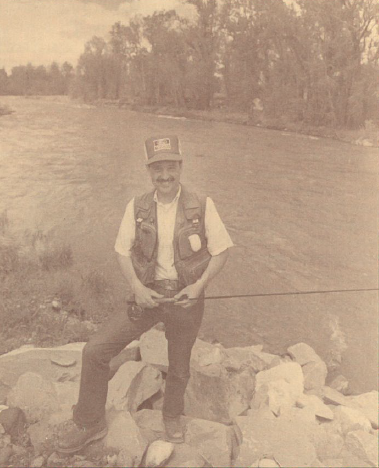Throwback Thursday: From the Vault
This past Tuesday we celebrated World Water Day, a day to learn more about water related issues. Though we often focus on the necessity of water for human life, it is important to remember water’s vital environmental role.
In 1987, PERC’s Terry Anderson and Don Leal witnessed firsthand how water shortages harm fish populations. They set out for a day of fishing on the Ruby River in southwestern Montana, but there were no fish to be caught. Most of the river’s flow had been diverted for irrigation, reducing the river to a trickle of water and killing off most of the Ruby’s fish population. The two observed that, though the Ruby River was nearly dry, six inches of water was standing in nearby fields. It became clear to Anderson and Leal that the problem of the dead fish could have easily been avoided if only small amounts of water were transferred from irrigation to instream flows.
Anderson and Leal later recounted the experience in the June 1988 issue of Fly Fisherman:
The problem goes back to the evolution of water law on the mining and farming frontier of the American West. Out of this environment developed the “prior appropriation” water doctrine, under which the first people to claim and use water obtained a priority right to it. . . . It is important to note that under the prior appropriation doctrine, rights can be established only by diverting water and putting it to “beneficial” use. If a rights holder leaves water in the stream, it is not considered a beneficial use, and he would lose the right since water not diverted reverts to the public domain and can be claimed by other diverters.
Under the prior appropriation, a water rights holder has an incentive to divert as much water as they can so that they can maintain their right to water for the next year. This, as evidenced by the dead fish of the Ruby River, results in detrimental outcomes for the plants and wildlife that rely on instream water flows. Anderson and Leal had an idea about how to incentivize water rights holders to leave water in the streams:
Our proposal is for an organization such as Trout Unlimited to get in the business of ‘renting’ or ‘leasing’ the small amounts of water necessary to prevent the Ruby River situation. For trout fishermen to use private options, a major legal obstacle to ownership of instream flows must be removed. Currently, strict adherence to the prior appropriation doctrine and the ‘use it or lose it’ principal dictates that no Western states allow such ownership even on a temporary basis. Trout fishermen could have a positive impact by lobbying for removal of this legal obstacle.
Anderson and Leal wrote this piece nearly 30 years ago. It turns out they were on to something.
Many states, including Montana, now have water leasing programs to provide instream flows for fish. Water users in Montana can now choose to leave some of their water in the stream without the risk of having it be considered a “non-beneficial use” and have the water right taken from them. Water rights holders can also lease a water right to the Montana Department of Fish, Wildlife, and Parks or private entities, such as Trout Unlimited. In this way, water users have a profit incentive to leave water in streams without the potential for their water rights and are assured their rights to future water use will not be taken.
Wasson Creek is a testament to the success of water leasing programs. It is an important trout fishery, but irrigation diversions lowered the creek’s water level and harmed trout populations. Trout Unlimited stepped in and leased instream flows on the creek, and the trout population flourished as water levels subsequently climbed.
Water issues are largely based on the fact that we undervalue consumptive uses of water. As water leasing shows, if we want to distribute water to its best uses, it is essential to allow the trade of water.
You can read “A Private Fix for Leaky Trout Streams” in full (and check out the original news clippings) here.



